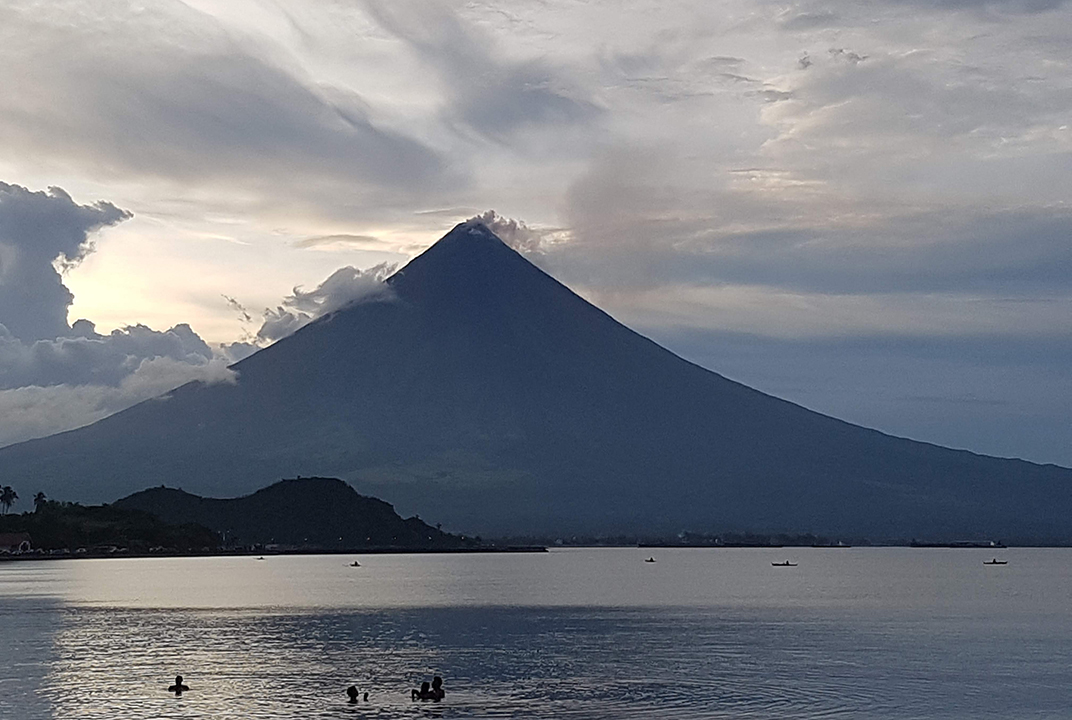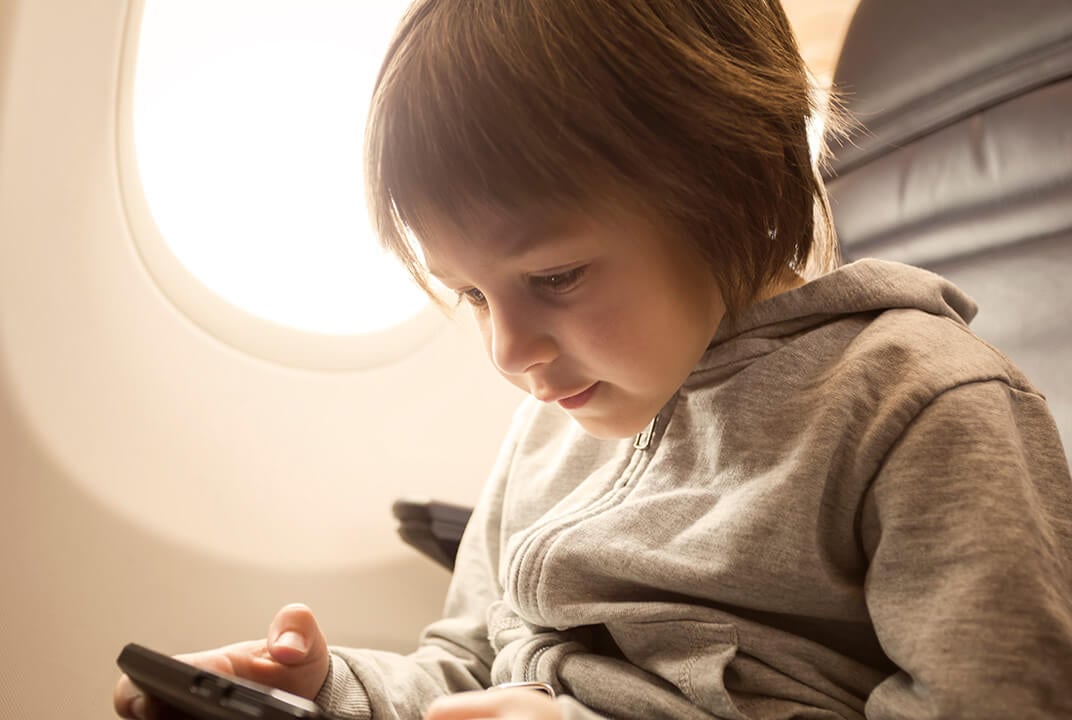Connectivity for mental wellbeing
Corporate
With a global focus on Mental Health Awareness this month, we examine satellite communication's role in supporting the mental welfare of people in the world’s most remote places.
It’s Mental Health Awareness Week in the UK and Mental Awareness Month in the US, and these events are designed to start conversations about mental health, with a focus on how to achieve good mental health and the day-to-day happenings that can affect it.
This year’s events are particularly poignant, given the year-long impact of the COVID-19 pandemic on the world’s population. The Mental Health Foundation’s ongoing UK-wide study has found that although 67% of respondents said they are coping well with the stress of the pandemic, many are struggling and have needed to use a wide range of strategies to cope, including going for a walk, spending time in green spaces, and staying connected with others.
Nobody understands the importance of staying connected better than Inmarsat. Our reliable global, mobile satellite communication services ensure that people in remote locations, whether on land, at sea or in the air, can stay in touch and connected, not only for business but importantly with family and loved ones too when away from home for long periods of time.
Crew welfare and safety
We have been working to keep mariners and vessels connected with our satellite network since 1979. Our work has revolutionised crew communications and safety: we were the first satellite operator to provide International Maritime Organization-approved Global Maritime Safety and Distress System (GMDSS) safety services and also the first to provide voice services at sea.
We continue to innovate and introduce new services to make internet access for the world’s 1.65 million seafarers fast and affordable and have partnered with leading maritime welfare charities, seafarer organisations and suppliers for many years to inspire change and raise the standard of living onboard.
During the COVID-19 crisis, we stepped up our support for seafarers as they lived through a crew change crisis between March and August 2020. During this time, it is estimated that only about 25% of normal crew changes were able to take place due to national lockdowns and travel restrictions, leaving at least half a million stuck on extended tours of duty and unable to return home.
To support the mental wellbeing of stranded seafarers, we offered a universal 50% discount for crew voice calling services using our FleetBroadband ChatCard voice service from April 2020, extending the offer twice throughout the year. This enabled crew to remain connected to their loved ones ashore, whilst also easing financial burdens.
We also worked with the International Seafarers’ Welfare and Assistance Network (ISWAN) and major maritime charities, to offer crew free calls to ISWAN’s SeafarerHelp service, as well as free access to the SeafarerHelp portal and live chat function. These services provided reassurance and support, both practical and emotional, for crew unable to travel home.
Crew welfare and safety was also assured through connection to the crew healthcare specialist VIKAND and software platform provider FrontM, who were able to provide a free COVID-19 video call service with a trained health professional. This led to crew feeling safer in the knowledge that expert medical advice was available to them, reducing stress levels.
Welfare 2.0
Alongside the efforts to combat the effects of the pandemic, we created a new report entitled “Welfare 2.0: How can the next generation of technology enable better crew safety, health and wellbeing at sea?”. This report explored the underlying factors affecting crew safety, welfare and learning, and uncovered the role that technology currently plays to bridge the gap between health and safety onboard. Not only did we investigate the effect of wellbeing on safety, but we also looked into how technology can detect stress and prevent accidents.
Commenting on the report, Ronald Spithout, President, Inmarsat Maritime said: “When we first discussed this report last year with the author and the welfare organisations and charities we work closely with, none of us could have foreseen the impact that COVID-19 would have on the world, shipping, seafarers and their families. However, even then, we all felt that safety and crew welfare was being left behind in the technology stakes and much more needed to be done to look at how it could help improve the lives of seafarers.”
We continue to ensure that crew welfare remains high on our list of priorities and have since introduced a series of festive promotions to keep seafarers connected over key times such as over Christmas and Chinese New Year. Offering an extra 33% talk-time on Fleet Xpress and FleetBroadband ChatCards means that crew who spend months at a time at sea, can feel just that little bit closer to family and friends during these special celebrations.
Remotely connected
Seafarers aren’t the only remote workers who rely on connectivity for their safety and mental welfare. Remote workers across a variety of sectors such as agriculture, mining, oil and gas and utilities, often travel to remote locations to ensure equipment is functioning, make repairs and safety checks.
Connectivity is vital for remote works, not only to stay in touch for work and home but it is also crucial for getting medical advice and help fast if based at a site that is several hours away from the nearest medical facility. This is where telemedicine can save lives and provide necessary reassurance, enabling workers to access qualified medical professionals who can provide rapid diagnosis of injuries and health conditions via our broadband connectivity services such as BGAN.
Military on deployment
Military personnel can be deployed on critical missions for months at a time and depend on our connectivity in the field not only for operations but also to stay in touch with home, send that special birthday wish or even read a goodnight story to their child. Maintaining this kind of contact with loved ones can be priceless when it comes to mental wellbeing, as soldiers feel connected to their families and in turn their families feel reassured in knowledge that they are safe and well.
The value the military places on the mental wellbeing of its personnel is illustrated by the Australian Defence Force’s (ADF) recent commitment to invest in enhanced connectivity for personnel on land, sea and air. The AUS$221 million contract extension for the provision of Inmarsat’s commercial satellite communications airtime services and managed hardware also included a Crew Quality of Life system to provide bandwidth for crew welfare services, which not only improve mental wellbeing but efficiency too.
“Inmarsat has supported ADF satellite communications requirements at home and overseas for over 30 years. This partnership has increased our capability to support wide-ranging ADF operations and provide greatly improved quality of life services for our deployed people.”
The psychology of survival
Our connectivity has also supported many explorers on their adventures around the globe – from Nirmal “Nims” Purja who led a team that made the almost impossible climb up K2 in the winter season to Ed Stafford’s expedition to walk the entire length of the Amazon River. Each time our connectivity was used not only to raise awareness of the mission and share the adventure with a worldwide audience, but crucially for safety, morale and mental wellbeing too.
In a series of videos that Inmarsat Ambassador Stafford created for us, he outlines the psychology of survival that is needed get through any difficult scenario – particularly relevant to everyday life now, as we continue to live through the effects of the pandemic. Highlighting the skills and tools required to successfully navigate these remarkable experiences, he talks about how you need to treat certain situations like a game, trust your gut and surrender to the flow of life.
Disaster recovery
In the event of a natural disaster or emergency situation, our satellite connectivity can play a vital role in supporting rescue and recovery efforts. As a satellite communications partner to the non-governmental organisation (NGO), Télécoms Sans Frontières (TSF), our connectivity is used for its emergency-response work all over the world and to keep the most vulnerable in touch with family and loved ones in times of disaster.
For instance, TSF worked with the United Nations Disaster Assessment and Coordination (UNDAC) to set up four Inmarsat satellite communications lines for people in Nicaragua affected by two category five hurricanes that hit within two weeks. The “Restoring Family Links” programme helped to reunite families, and two more links were set up to aid evacuation operations.
The TSF team also installed Wi-Fi access points for those moved to emergency shelters, to further help people trying to contact their relatives, as well as to stay safe by finding updates on the path of the second hurricane.
Flying out of the pandemic
And for those who are just looking to travel again as the world recovers from the pandemic, the aviation industry has seen some interesting developments. We saw the highest ever take-up rates on our European Aviation Network (EAN) inflight connectivity solution when flights resumed within Europe last summer. This suggests people feel more secure if they can stay in touch with family and friends as travel away from home.
This theory of connectivity in the air supporting mental wellbeing has been further supported as numbers of people choosing to connect via onboard Wi-Fi have soared since flights have resumed within the newly formed Australia/New Zealand bubble. It seems that it is not just those working in remote locations that are reassured by connectivity, we all are.
With greater awareness of mental health in these post-pandemic times and satcom technology advancing at a faster rate than ever, we are working to ensure that nobody feels disconnected, no matter where they are in the world.

